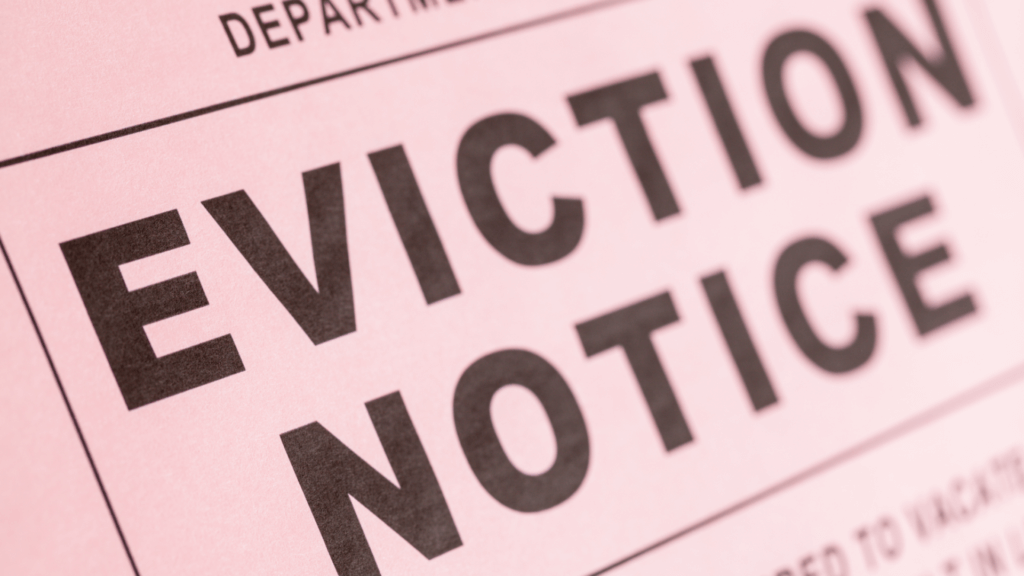
When it comes to landlords and renters, much of the focus in 2020 has been on residential tenants and rent moratoriums, leaving the current plight of commercial landlords on the backburner. Since the COVID-19 pandemic began, landlords have struggled with non-paying commercial tenants. This has ultimately left landlords without the funds to support their own businesses and/or to make mortgage payments to lenders. Now, many commercial landlords across the nation are facing a new hurdle – commercial eviction of non-paying tenants from their properties to allow space for other business owners.
Commercial Eviction Amid COVID-19
Commercial landlords have struggled with collecting rent from their tenants throughout 2020, leaving many landlords unsure of how they can continue operating in the New Year. Businesses of varying industries, including restaurants, retail shops, and other small businesses, have been unable to pay rent. Many commercial tenants have decided to close because they don’t believe their companies will ever bring employees back into a physical office.
It’s important to note that in the event a business decides to close its doors for good, it isn’t released from its lease obligations. According to Millionacres, data from the end of September shows the amount of small businesses in operation was down by 24.1% when compared to January. Additionally, revenue within these businesses was also down by 23.2%, while the number of businesses that operate within the retail and transportation sector that remained open was down by 19.1%, and the number of hospitality and leisure businesses that remained open was down by nearly 37%. These startling figures add up to an insurmountable strain on commercial landlords that rely on theses businesses to remain in operation and pay rent.
This raises the question: what are these landlords’ options to evict the tenants? While residential and commercial evictions are similar in some respects, commercial leases differ based on the type of lease negotiated between landlord and tenant. For instance, many retail tenants are on triple net leases, meaning that in the event they are unable to pay rent, the landlord may be liable for paying property taxes and insurance as well. In addition, many commercial tenants opt to install trade fixtures of equipment needed for their specific industry. Meaning, that even if the landlord is able to get the tenant to leave the premises or lock them out of the business, the property owner and/or manager will still be on the hook with regard to property left behind, including attached fixtures.
What Commercial Landlords Should Expect
Commercial landlords have faced countless hurdles throughout 2020; and, unfortunately more struggles are likely to arise as the New Year approaches. Despite being in communication with tenants now more than ever before, landlords have had to deal with them wrongfully forgoing rent payments.
While landlords could expect relief through a second stimulus package or through the potential passing of the Helping Open Properties Endeavor Act of 2020 (HOPE Act), which aims to assist the commercial real estate sector, the threat of a prolonged second lockdown remains. Further lockdowns will cause additional disruption for commercial landlords and tenants unsure of how much longer they can continue operations if they are unable to conduct business normally.
Commercial Lease Dispute Attorneys
As the coronavirus pandemic rages on, commercial landlords continue to battle with tenants over wrongfully unpaid rent and broken leases. While landlords can evict tenants on a case-by-case basis depending on the type of lease in question, evicting a non-paying tenant has the potential to cost landlords more in the long run. As these instances continue, it is often in the landlord’s best interests to seek legal counsel from an experienced commercial lease dispute attorney.
At Raizner Law, we have years of experience successfully representing commercial landlords in legal disputes and we will fight to get you the financial compensation you deserve and need to keep your business going. If you are a commercial landlord dealing with a large national tenant that is wrongfully refusing to make rent payments, contact our office today to see how we can help.


